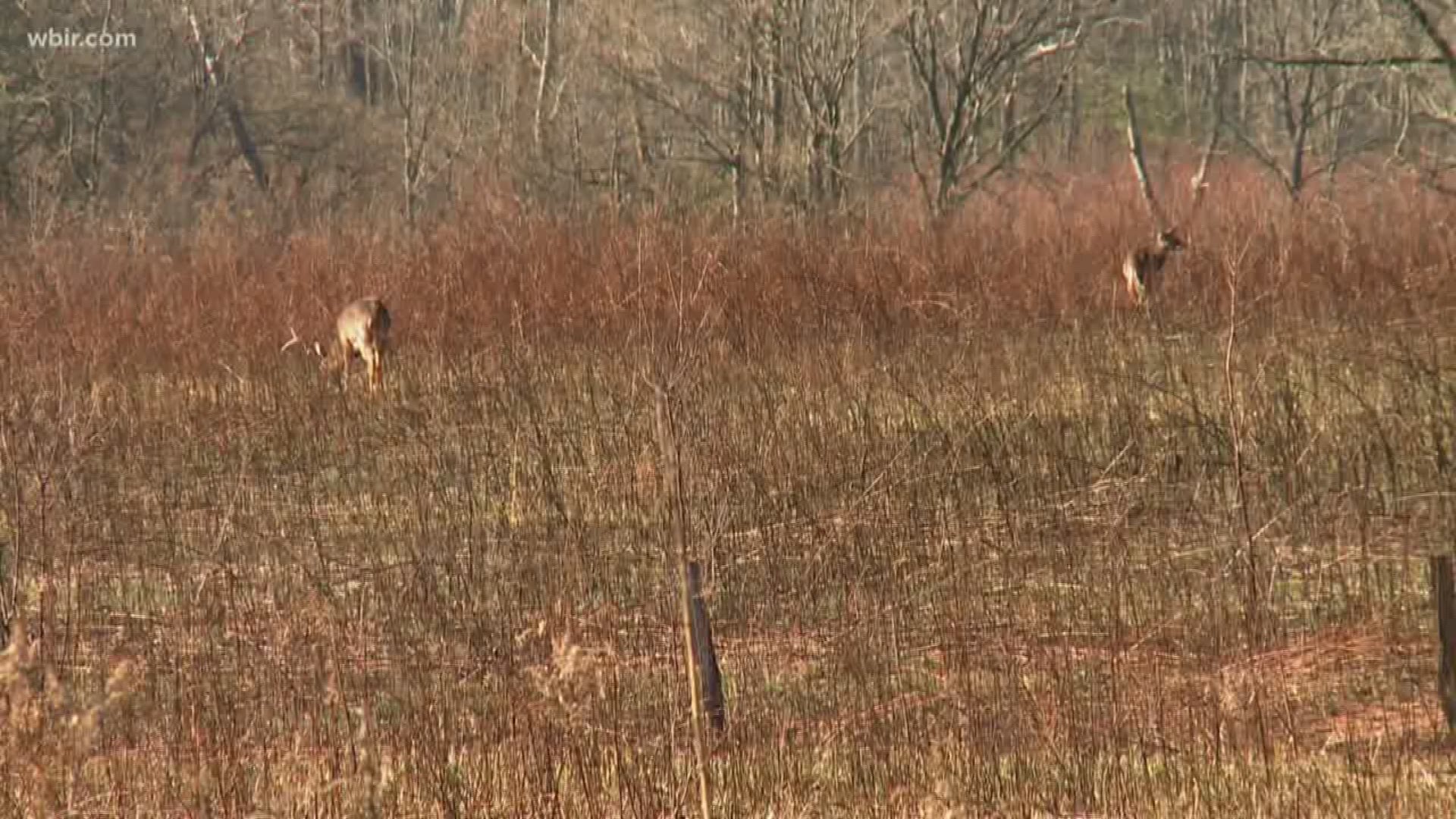NASHVILLE, Tenn. — A Madison County deer sampled within 10 miles of Crockett and Gibson counties has tested positive for chronic wasting disease, making Crockett County and Gibson County high-risk CWD counties.
In a statement, Tennessee Wildlife Resources Agency officials said the disease is spreading. They "fully expect" CWD to affect more counties this year.
According to the Tennessee Wildlife Federation, CWD is a "highly-contagious" illness affects deer, elk and moose -- and there's no known cure. While CWD is related to mad cow disease, there's no evidence it could spread to humans.
RELATED: Tennessee wildlife officials working to prevent CWD's spread as deer hunting season approaches
TWRA's CWD coordinator Chuck Yoest said people can help slow the disease's spread.
“It is unfortunate, but not unexpected that we are identifying more high risk counties. There are now feeding restrictions and deer carcass exportation restrictions in Crockett and Gibson counties. It is important that the citizens in these counties help us in the fight against the spread of CWD by knowing the rules and following them," Yoest said.
So what are those rules? The TWRA said people in high-risk or positive counties cannot leave out grains, salt products, or other natural or store-bought wildlife products. This reduces deer to deer contact, slowing CWD's spread.

